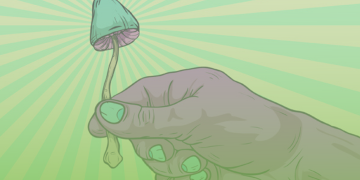“Why am I stressed for no reason?”
It’s a question we all ask ourselves, but it is misleading. You see, from both spiritual and scientific perspectives, nothing happens for no reason.
The sun doesn’t accidentally rise each day; the cosmic forces of gravity and inertia create the illusion of the sunrise for us humble mortals here on planet Earth. The tide doesn’t accidentally rush to shore; the tug of our moon moves the water, despite being hundreds of thousands of miles away.
Famed psychologist Carl Jung first introduced us to the concept of Synchronicity, which is the idea that events are “meaningful coincidences”. This has become perhaps the most famous of his works, the idea that there is no such thing as real coincidence. It’s so popular that the Police (the band) even named two songs and an entire album around Synchronicity.
Just like the celestial bodies themselves, we too are bound by synchronicity in a manner of speaking. While it may appear that you are stressed for no reason, there is something —physical, chemical, or emotional—tugging on you, contributing to this. If you can pinpoint the origin of this anxiety, you take the first step on the path to relief.
What am I stressed about?
If I could figure it out for you, I assure you I would. We are complicated creatures driven by a neurotic mess of chemical impulses, animal instincts, and unpredictable thoughts and emotions. The truth is anything can stress a person out. You could be stressed that it’s raining, or stressed because you saw a tree that was too big and freaked you out, or you could be stressed because the wifi isn’t as fast as it usually is.
Somewhere we got it in our heads something has to be a “big deal” to be worthy of being stressed over. The question should not be “am I right to be stressed about this?” If you’re asking that question, you already are stressed about it, and the question should be “what can I do about this?”
The answer may be nothing. You may have to work through the stress. Disciplines like mindfulness meditation can help us gain awareness of our stress—thus reducing some of the power this stress has over us.
On the other hand, if you are able to figure out what is causing your stress, you can take action to stop it at the root of the problem. You may be surprised at the things that can contribute to stress (although some of them seem obvious).
A mantra that gets passed around a lot says not to sweat the small stuff. Sounds like great advice at first. But the reality is the big stuff—the stuff you are allegedly supposed to sweat—is the kind of stuff you take care of when it comes up. Stressed because you’re behind and dishes and laundry? Well, you’re likely going to do some dishes and laundry.
But the small things that we’re supposed to cast aside and forget build up. These tiny cracks in the windshield of our mind just get bigger and more spread out the longer we ignore them. Pretending you don’t have stress is not a viable solution, long-term.
Instead, I encourage you to read more into mindfulness meditation or other forms of treatment for stress and anxiety. Admit that you are stressed, no matter how silly the stress seems to be, and it begins to lose its power over you. If you ignore it, it only grows larger in the shadow of your mind.


































